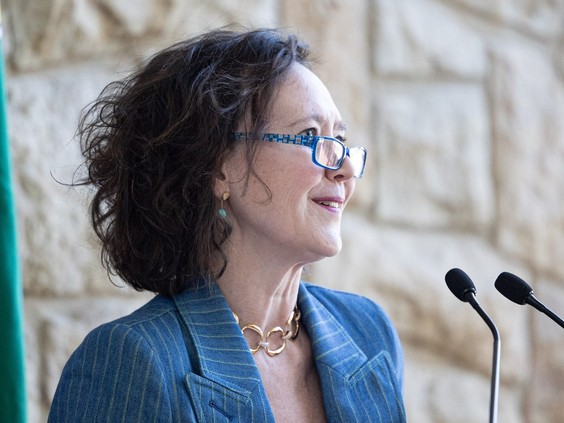
Regina Leader-Post Staff
Saskatchewan and Alberta’s justice ministers say parental consent to change a student’s preferred pronouns at school “ensures the parent-child relationship is respected and paramount.”
“Saskatchewan and Alberta agree that the ultimate authority figures in children’s lives are their parents,” said a joint statement from Saskatchewan Justice Minister and Attorney General Bronwyn Eyre and her Alberta counterpart Mickey Amery on Tuesday afternoon.
“Our provinces are both committed to supporting families and kids so they can work through their child’s unique needs together.”
The statement comes one day after Alberta’s intention to intervene in the Saskatchewan government’s appeal of a Bill 137 court challenge was made public at a pre-conference in a Regina courtroom Monday.
The Parents’ Bill of Rights, a new law which was passed in October, requires students under 16 to obtain parental or guardian consent for school staff to “use the pupil’s new gender-related preferred name or gender identity.”
The notwithstanding clause was invoked in the passing of the law, allowing it to stand regardless of whether or not it violates sections 2, 7 and 15 of Canada’s Charter of Rights and Freedoms.
On Feb. 16, Court of King’s Bench Justice Michael Megaw announced his decision to allow UR Pride Centre for Sexuality and Gender Diversity to alter its original legal action to target that new law, instead of the policy which preceded it, and to add a challenge that the law violates Section 12 of the Charter, which protects Canadians against cruel and unusual treatment or punishment.
The ruling also agreed that the litigation may proceed to arguments, rejecting the provincial government’s claim it is now “moot” as the policy was rescinded with the introduction of the bill.
“Alberta will seek to advance legal arguments that Saskatchewan’s use of section 33 of the Charter (the Parliamentary Supremacy Clause) should have prevented Saskatchewan’s Court of King’s Bench from reviewing the constitutionality of the Education (Parent’s Bill of Rights) Amendment Act, 2023 legislation,” reads the joint statement.
The pair argue that the court case has the potential to “impact parental rights across Canada,” as well as constitutional supremacy.
Eyre, following Megaw’s decision in February, said the notwithstanding clause “was created to ensure that this power remained with provincial Legislatures, and ultimately the people, when required.”
Tuesday’s statement confirmed Alberta has written to the Saskatchewan Court of Appeal with its intention to intervene in the pending appeal proceedings.
The legal challenge from UR Pride was filed in August, a week after then education minister Dustin Duncan announced the pronoun consent policy. The policy caused an uproar of opposition from the public, teachers, sexual health experts and human rights advocates, including the provincial child and youth advocate.
Critics say the policy unfairly targets and isolates transgender and gender diverse youth, putting them at risk of potential physical or emotional harm by misgendering or outing them against their will.
Saskatchewan’s courts granted an injunction to block implementation of the policy in September, on such grounds.
Less than a month ago, Alberta Premier Danielle Smith said she intends to introduce gender policy legislation that mirrors Saskatchewan’s, with the addition of restrictions on health care access to gender-affirming surgery and hormone treatment for minors.
New Brunswick also introduced an education policy last year that directs schools to seek parental permission to use a students’ preferred pronouns, the first province in Canada to do so.
— with files from Larissa Kurz, Brandon Harder

